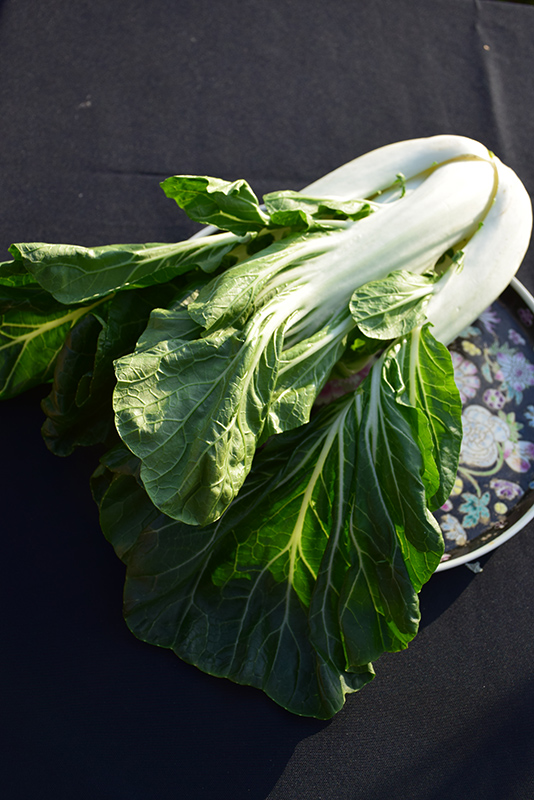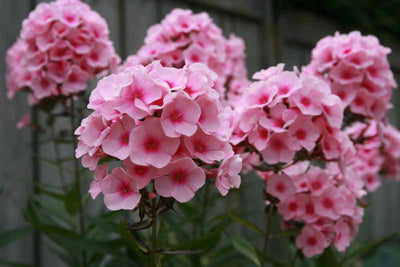Plant Library
Joi Choi Pak Choi
Brassica rapa var. chinensis 'Joi Choi'
Height: 18 inches
Spacing: 12 inches
Sunlight:
![]()
![]()
Hardiness Zone: (annual)
Other Names: Chinese Cabbage, Bok Choy
Description:
Dark green pebbled leaves sitting on top of white vase shaped stalks with a mild, juicy and delicate flavor; ideal for stir fry, simple sautéing and soups; cover if growing in cool conditions; stagger planting to ensure long harvest
Edible Qualities
Joi Choi Pak Choi is an annual vegetable plant that is typically grown for its edible qualities. The entire above-ground parts of the plant are edible, and are typically harvested when mature. The edible parts have a mild taste and a juicy texture.
The plant is most often used in the following ways:
- Fresh Eating
- Eating When Cooked/Prepared
- Cooking
Planting & Growing
Joi Choi Pak Choi will grow to be about 18 inches tall at maturity, with a spread of 11 inches. When planted in rows, individual plants should be spaced approximately 12 inches apart. This fast-growing vegetable plant is an annual, which means that it will grow for one season in your garden and then die after producing a crop.
This plant is typically grown in a designated vegetable garden. It does best in full sun to partial shade. It does best in average to evenly moist conditions, but will not tolerate standing water. This plant is a heavy feeder that requires frequent fertilizing throughout the growing season to perform at its best. It is not particular as to soil pH, but grows best in rich soils. It is somewhat tolerant of urban pollution. Consider applying a thick mulch around the root zone over the growing season to conserve soil moisture. This is a selected variety of a species not originally from North America.
Joi Choi Pak Choi is a good choice for the vegetable garden, but it is also well-suited for use in outdoor pots and containers. It is often used as a 'filler' in the 'spiller-thriller-filler' container combination, providing the canvas against which the larger thriller plants stand out. Note that when growing plants in outdoor containers and baskets, they may require more frequent waterings than they would in the yard or garden.





